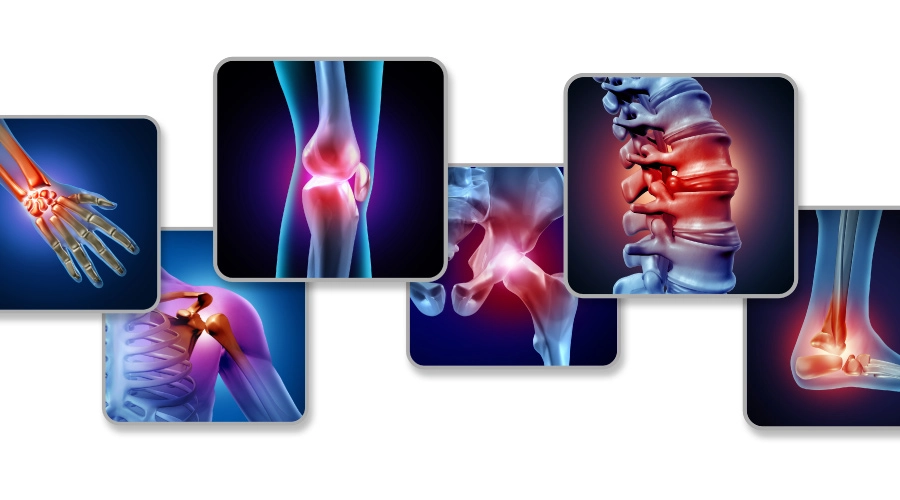
Joint Replacement in Ahmedabad
Joint pain can greatly impact our daily activities, making it difficult to perform simple tasks like bending, sitting, and walking.
Orthopedics is a branch of medicine that focuses on diagnosing and treating all issues related to the musculoskeletal system, including bones, joints, tendons, ligaments, and muscles. The goal of our orthopedic department is to provide pain-free and functional recovery for all patients. Our orthopedic surgeon is a highly skilled expert, ensuring that every patient receives top-notch care. The department specializes in treating a wide range of bone issues, such as deformities, infections, tumors, fractures, and more. Additionally, the department also addresses issues related to arthritis, joint pain, swelling, and dislocation. With over 5000 surgeries performed with a success rate of less than 1% infection rate, our expert surgeon is highly experienced.
Treatments and Procedures
Our goal is to promote early mobilization and minimize discomfort for our patients. This innovative and specialized treatment approach provides unparalleled levels of expertise and patient care in the field of orthopedics. To restore the functional abilities of our patients postoperatively, we offer rehabilitation and physiotherapy services. Our team of specialists, state-of-the-art technology, and exceptional support staff work together with a patient-focused philosophy to ensure you receive the best possible treatment.
 Joint replacement surgeries of hip and knee (THR and TKR)
Joint replacement surgeries of hip and knee (THR and TKR)
 Unicondylar Knee Replacement (Microplasty)
Unicondylar Knee Replacement (Microplasty)
 Peri prosthetic Fracture surgeries
Peri prosthetic Fracture surgeries
 Shoulder and Elbow replacement surgeries
Shoulder and Elbow replacement surgeries
 Manage arthritis
Manage arthritis
 Severe surgeries such as arthroscopic ligament reconstruction (ACL), meniscus, and chondral surgeries
Severe surgeries such as arthroscopic ligament reconstruction (ACL), meniscus, and chondral surgeries
 Mosaicplasty
Mosaicplasty
 High Tibial Osteotomy
High Tibial Osteotomy